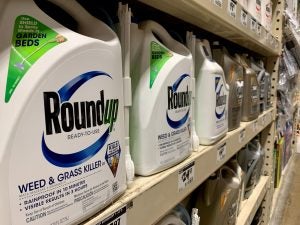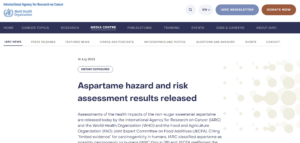Our criminal justice system isn’t perfect. Sometimes courts and juries get it wrong and convict innocent people for a crime they never committed. Can you imagine being in that position as the cell doors clang shut and lock? I doubt it’s much comfort to the wrongly conflicted that, should they ever be exonerated, the state will compensate them for the years behind bars. But, I suppose, at least we try to do something.
The stakes aren’t quite so high on the civil side of things — no one is sent to prison for breaching a contract. But outside the courts, all sorts of tribunals, regulatory agencies, and oversight committees make decisions and take actions that can cause devastating, long-lasting, and widespread consequences. And often there’s no opportunity for recourse.
That’s how I would describe the World Health Organization’s International Agency for Research on Cancer (IARC). It cherry picks evidence, declares something is likely, probably, or maybe a carcinogen and then sits back to see what happens. It doesn’t seem to care that it got a decision wrong, that it unnecessarily scares people, or that it causes certain companies untold economic damage.

Just ask glyphosate. In 2015, based on scant evidence, the IARC declared the active ingredient in many herbicides, including Roundup, a “probable” human carcinogen. It didn’t matter that literally every other regulatory agency in the world looked into the data and reached the opposite conclusion. Nor did the IARC reconsider its decision as additional research found no correlation between glyphosate and cancer.
Of course, we know the costs of that decision. Thousands of lawsuits later, Bayer (and formerly Monsanto) paid out millions of dollars in judgments obtained by people claiming exposure to glyphosate caused their cancer, despite dubious evidence linking the two. With billions of dollars in settlements now in the works, Bayer has decided to stop selling Roundup for home and garden use to limit its future liability.
Don’t get me wrong, I don’t blame the cancer patients. But it really felt like those opposed to Roundup, and also genetically modified crops, teed this up perfectly. The IARC’s classification was enough to support lawsuits and hit manufacturers in the pocketbook. Activist groups, like the Environmental Working Group, raised their profile by promoting the classification and tying it to propaganda. And these tactics are have subsequently undermine other important crop protection tools.
The only ones benefiting are the lawyers (and, yes, I say that as a lawyer myself), the radical environmental activists, and those in academia looking to offer their expert opinion in court.
Now it seems the same formula is being used to target aspartame.
Aspartame is an artificial sweetener found in a variety of foods and beverages, like diet sodas and chewing gum. It provides a sweet flavor without the calories associated with sugar. Although some people complain of side effects like headaches and dizziness, the Food and Drug Administration has concluded that aspartame is safe for most people to consume in moderation. Most importantly, it doesn’t cause cancer.

But that didn’t stop the IARC from concluding last week — based on what it calls “limited evidence” related to a type of liver cancer — that aspartame is “probably” carcinogenic to humans. As Food Science Babe explained, this is a load of rubbish. She points out that it’s one of the most widely studied food additives in the world. And many robust studies have found no causal link with cancer. Only a single paper (only one) found a small correlation, which was also susceptible to other explanations.
Doesn’t this story sound familiar? It certainly feels like too much of a coincidence. The IARC classifies the world’s most-used herbicide as a carcinogen and spawns countless lawsuits. The IARC classifies the world’s most-consumed food additive as a carcinogen and … spawns countless lawsuits? I wouldn’t doubt it. Food bloggers and fitness gurus have beaten the anti-aspartame drum for a very long time. Perhaps it’s now time for them to cash in.
As a cancer survivor, this riles me up. If there was a substantial body of evidence showing a correlation between exposure to, or consuming of, a substance (say, smoking cigarettes), I would have no problem with the IARC’s classification. But this feels like a game people are playing to sow confusion, exploit cancer patients, and hit companies with deep pockets. And if we start to see aspartame lawsuits popping up, we’ll know I’m right.
Unfortunately, the IARC isn’t going to compensate the companies and people hurt by these classifications. There is no accountability for its decisions.
Amanda Zaluckyj blogs under the name The Farmer’s Daughter USA. Her goal is to promote farmers and tackle the misinformation swirling around the U.S. food industry.



